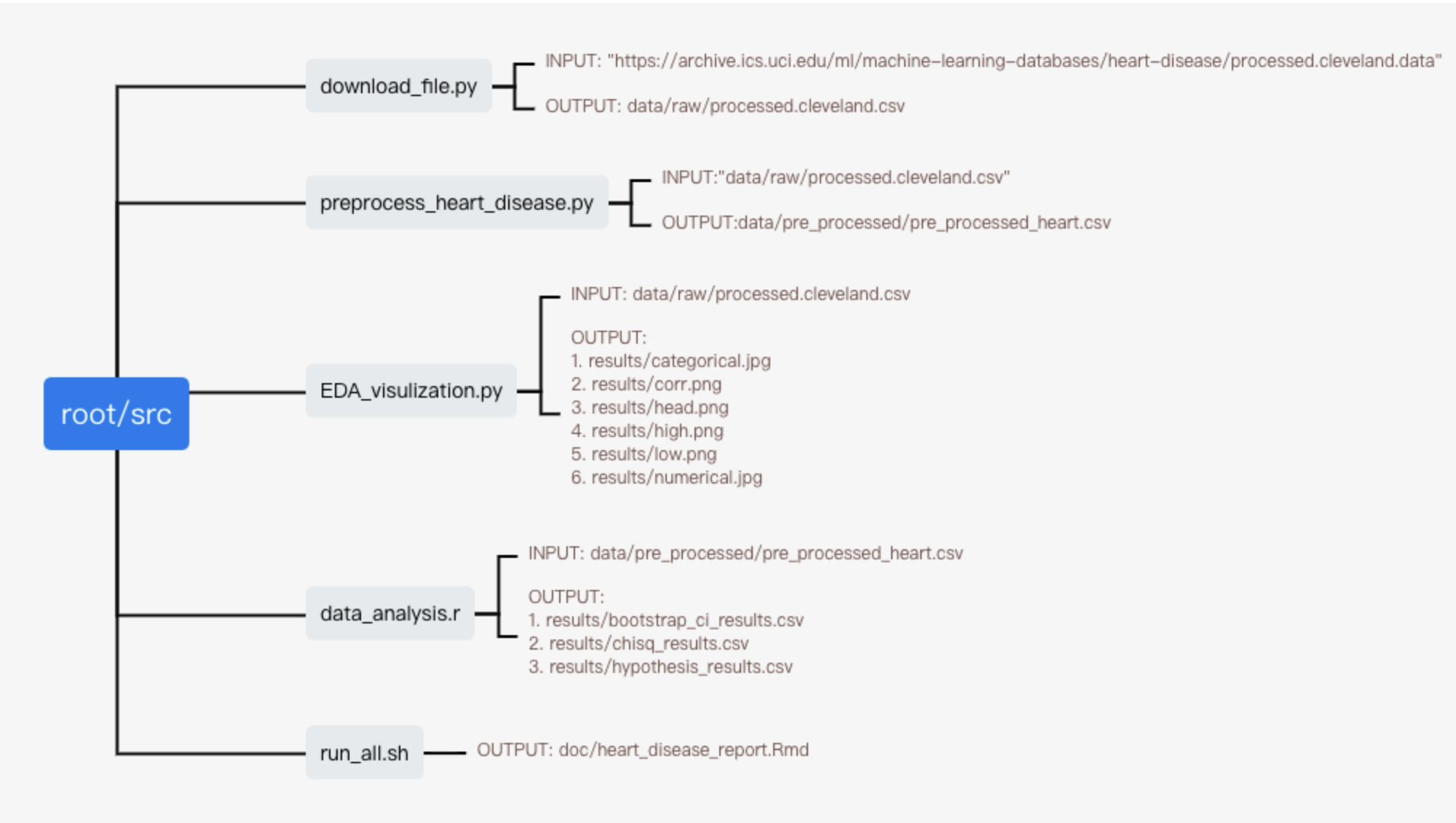Inferential Study Identifying Factors Associated with Heart Diseases
Summary

The project aimed at determining the relationship between heart disease probability and demographic/health factors such as age, sex, chest pain type, and cholesterol levels. Hypothesis testing was performed using permutation tests for numerical variables like age and electrocardiography (ECG) results such as maximum heart rate achieved and ST depression induced by exercise relative to rest. The Chi-Squared Test was used for categorical variables in contingency table analysis. Results indicated that heart disease patients have higher average age, lower maximum heart rate achieved, and higher ST depression induced by exercise relative to rest compared to non-heart disease patients. Other factors associated with heart disease include sex, chest pain type, exercise-induced angina, slope of the peak exercise ST segment, number of major vessels, and defect type.